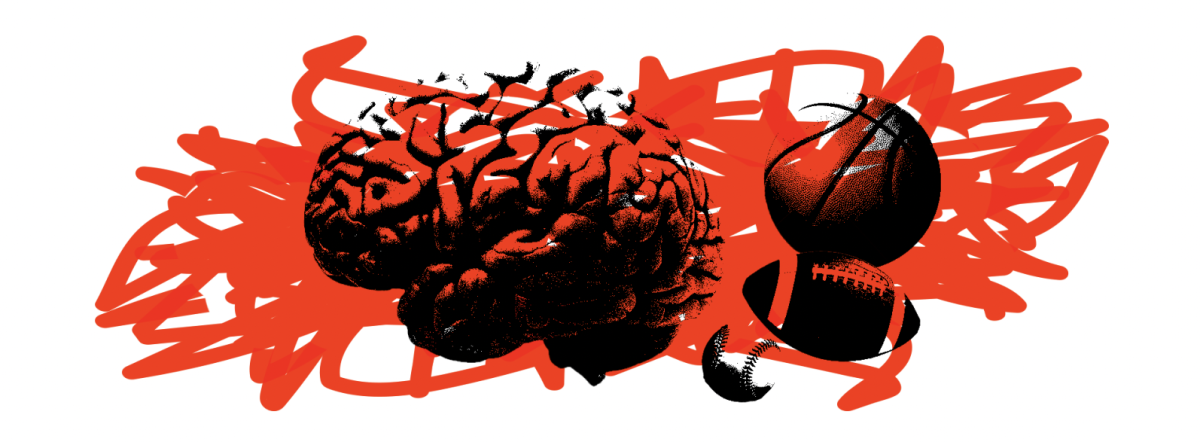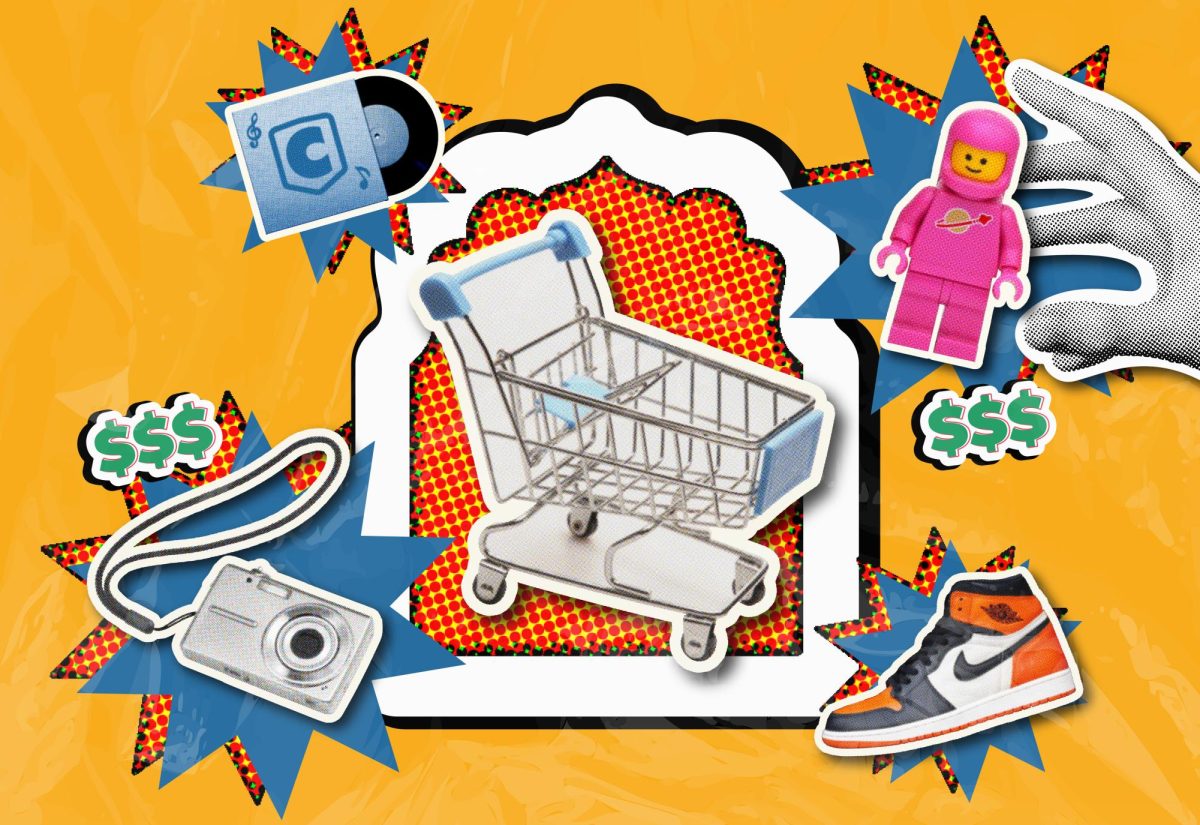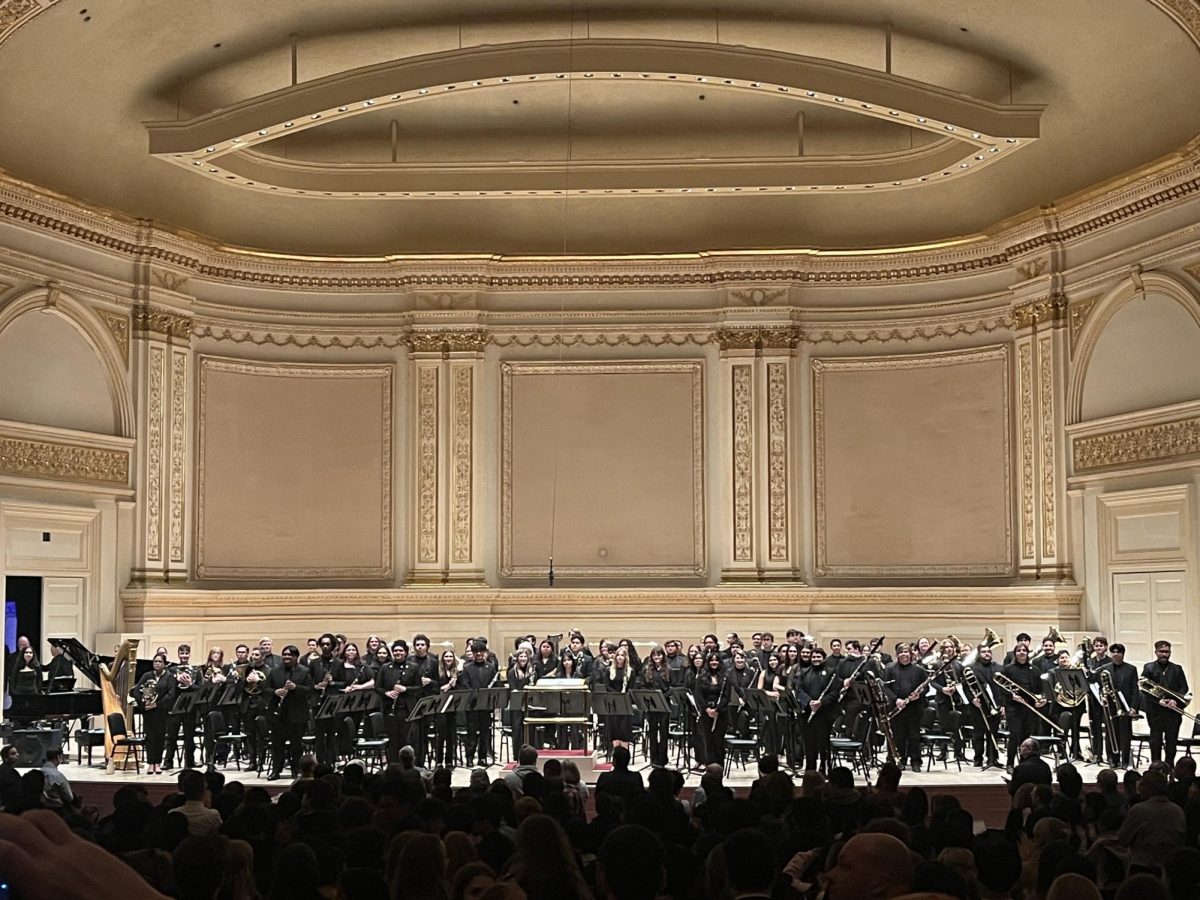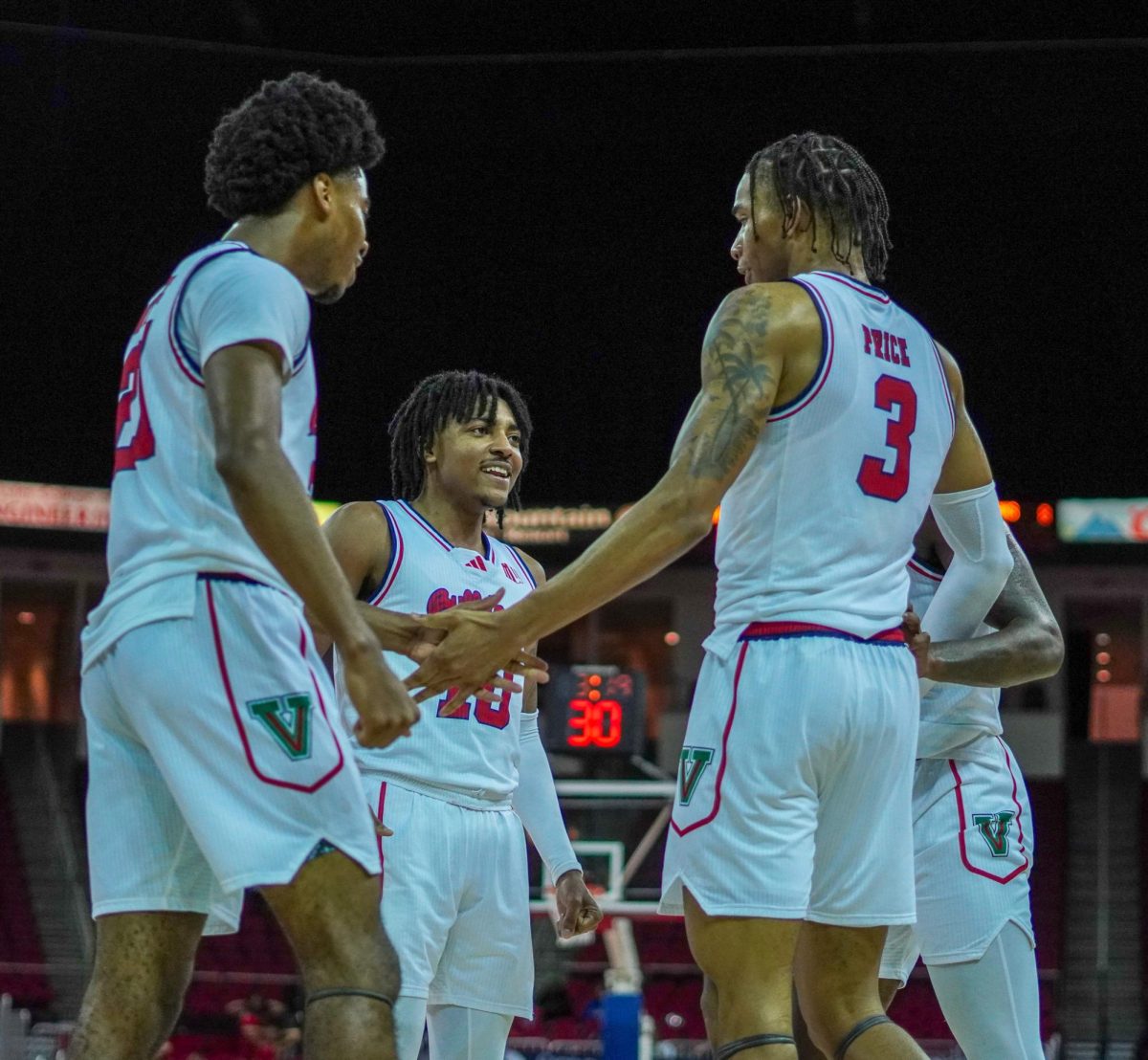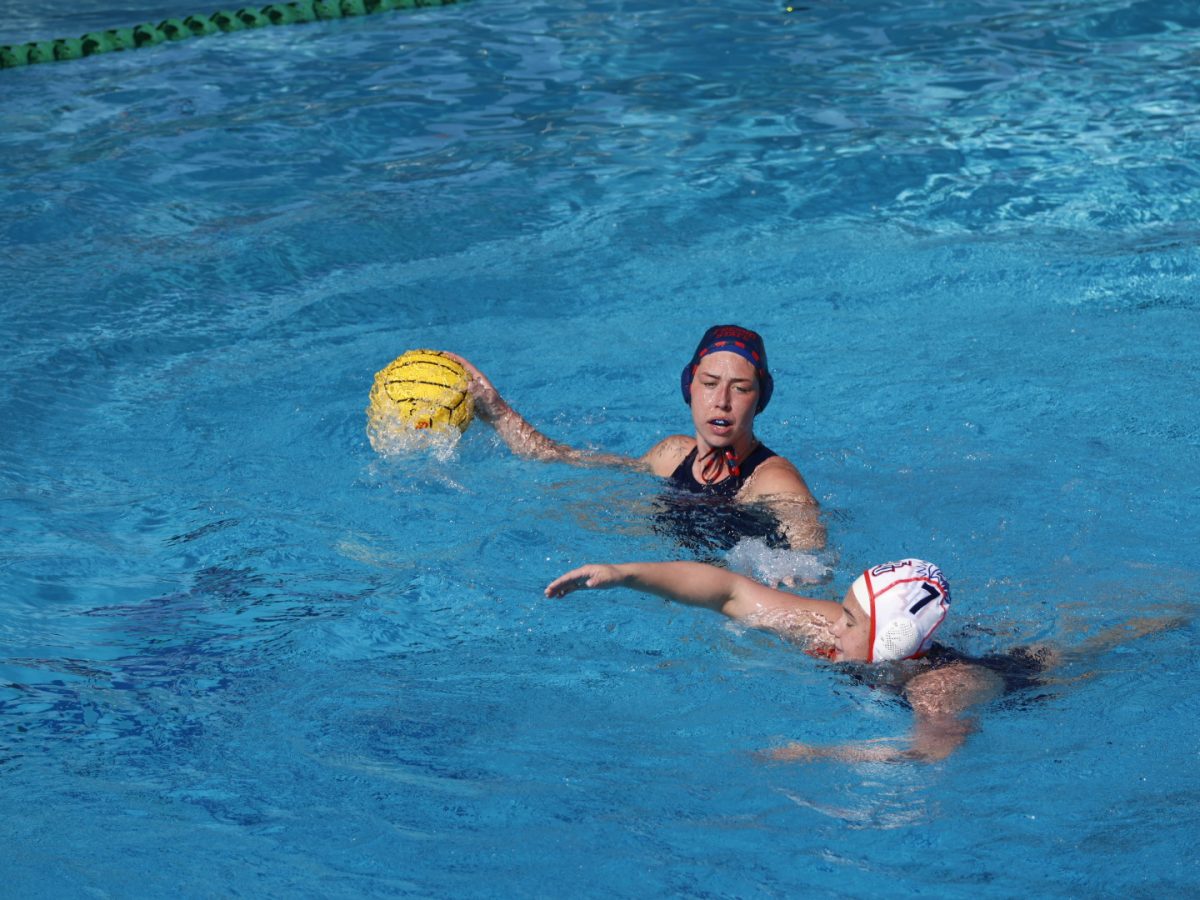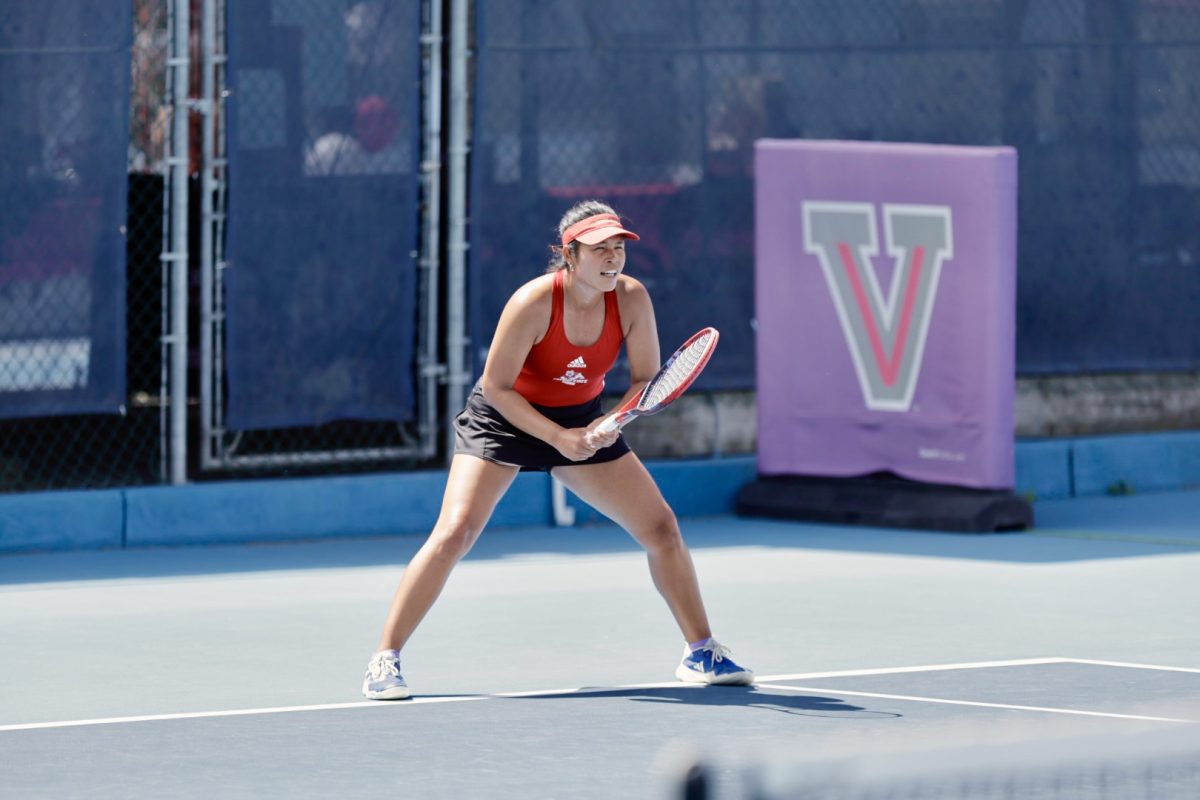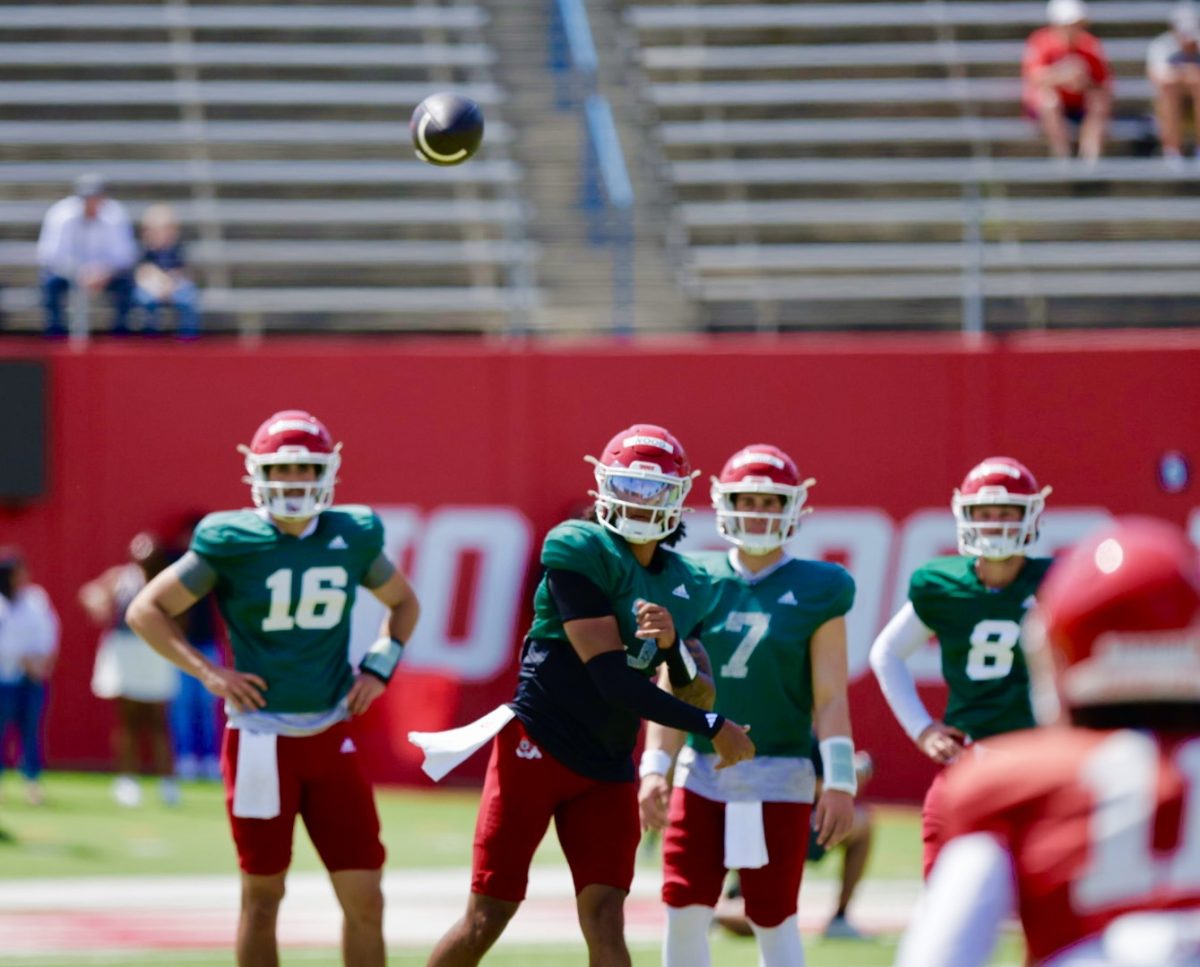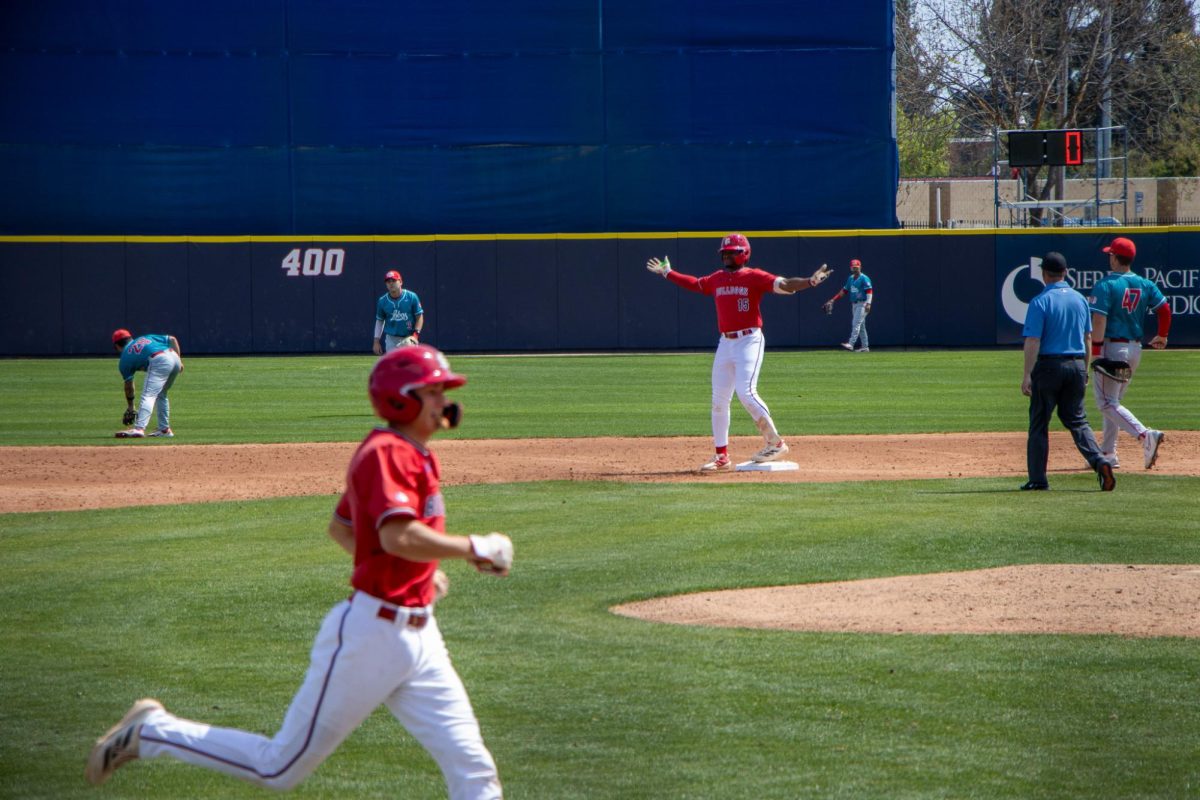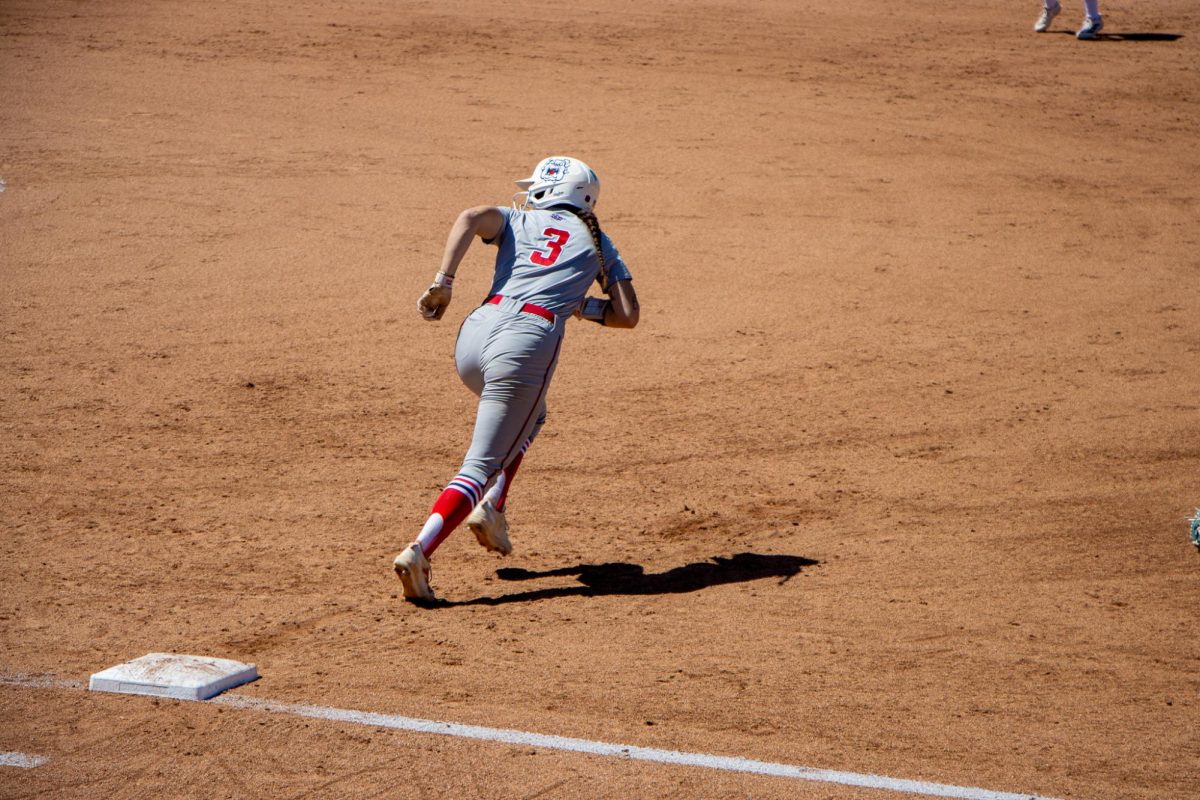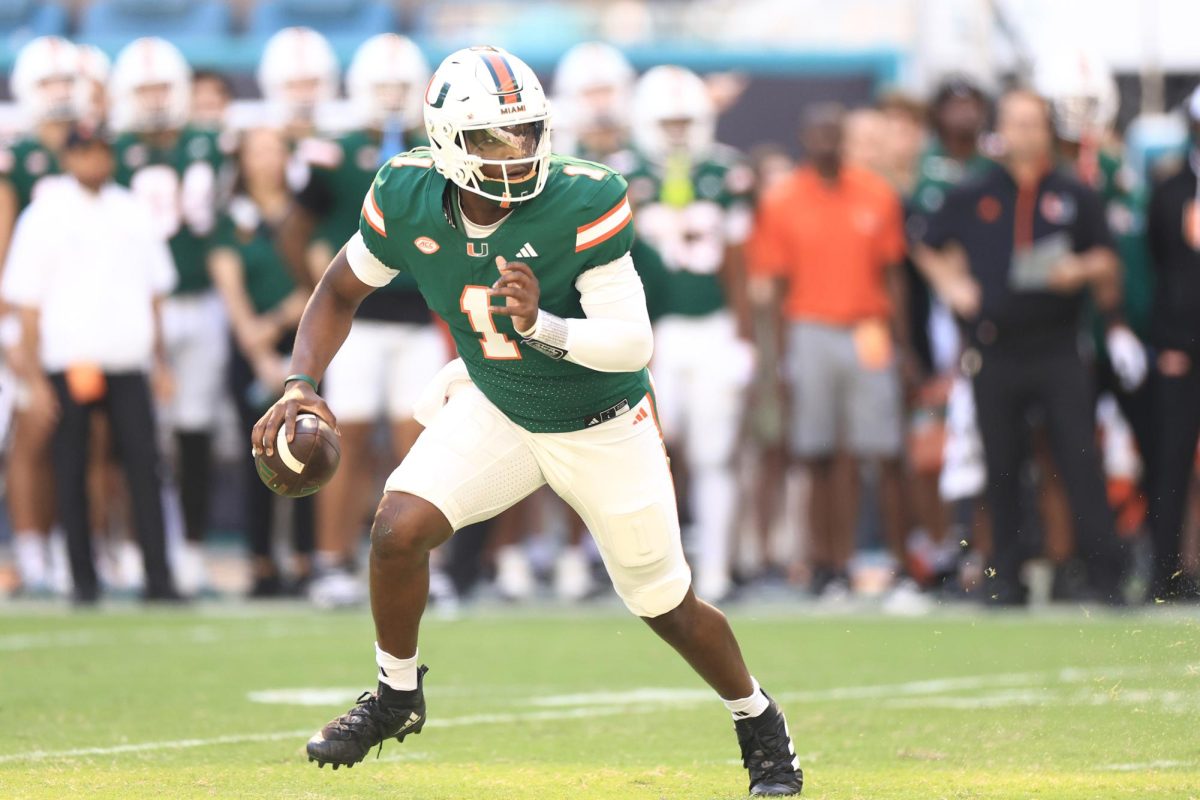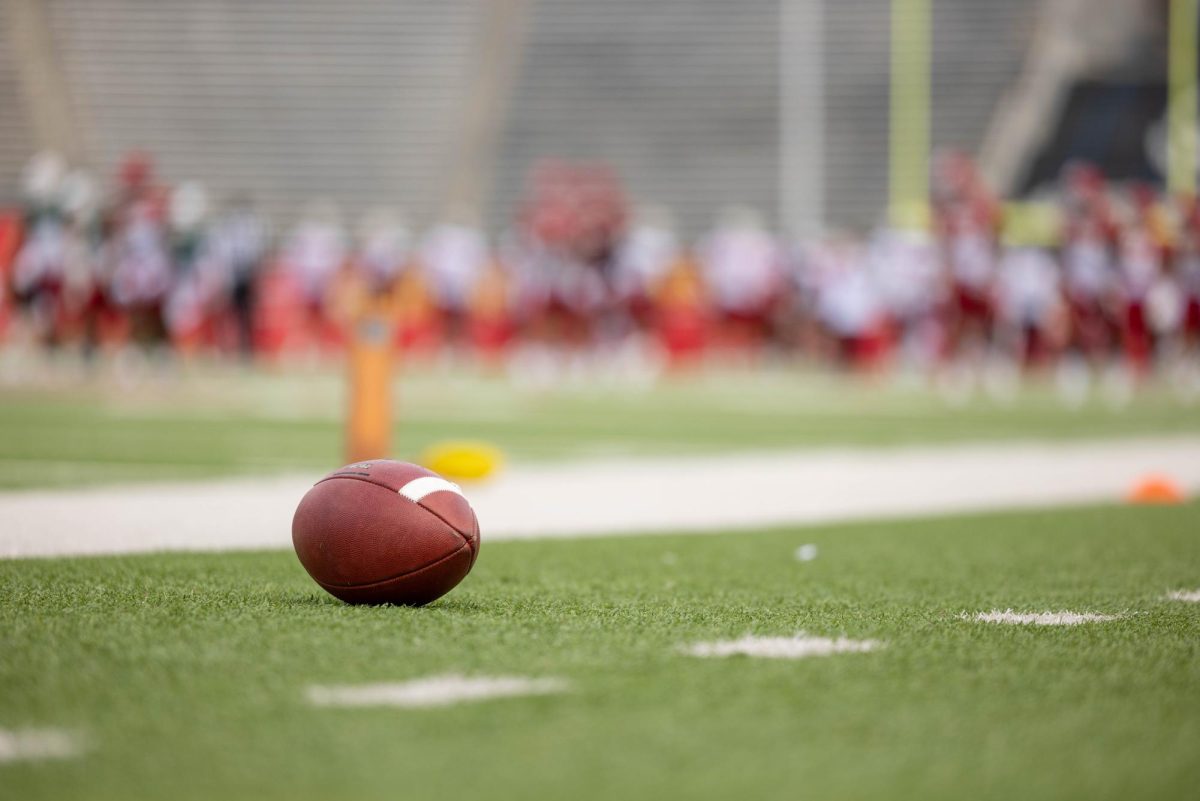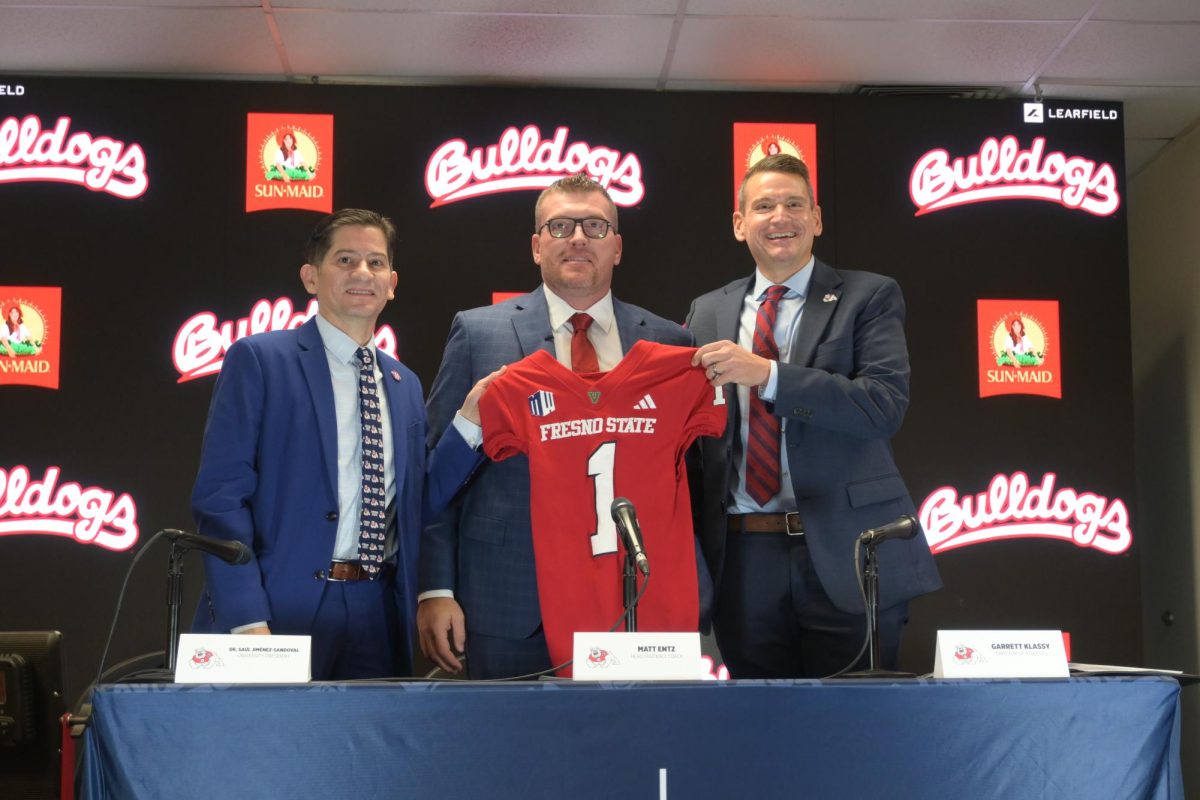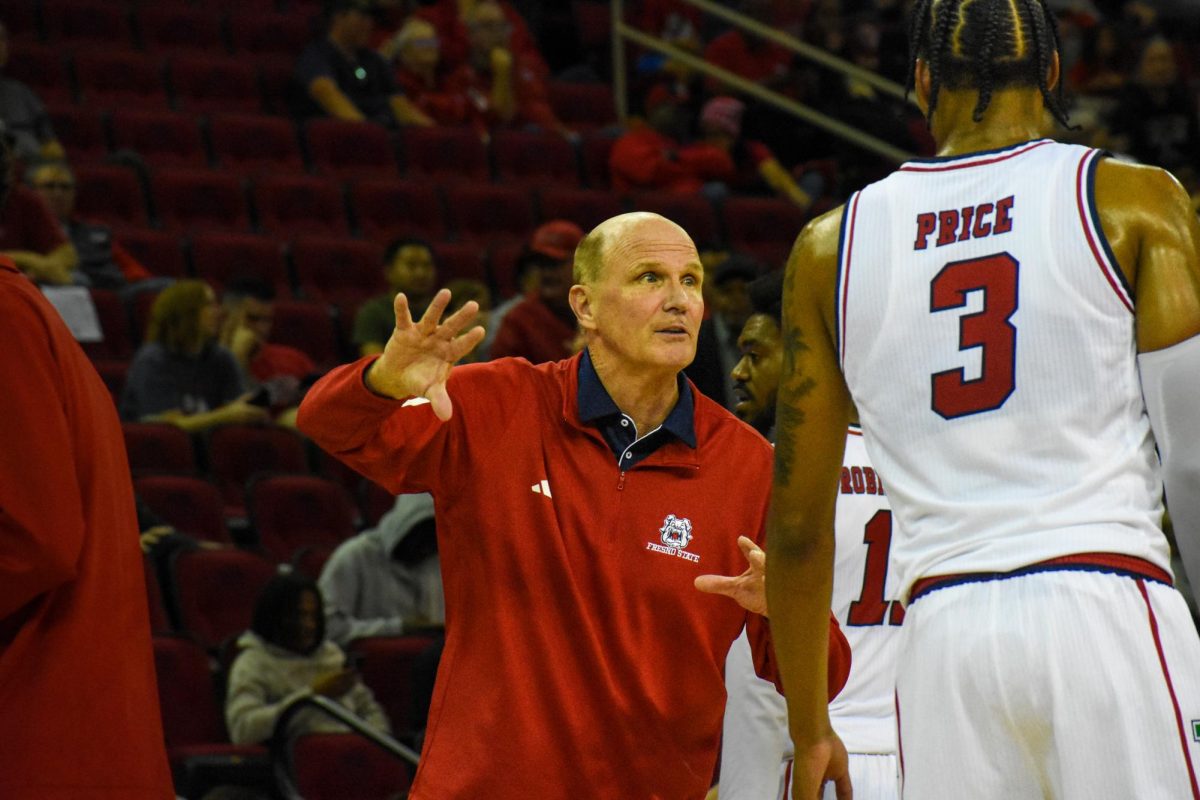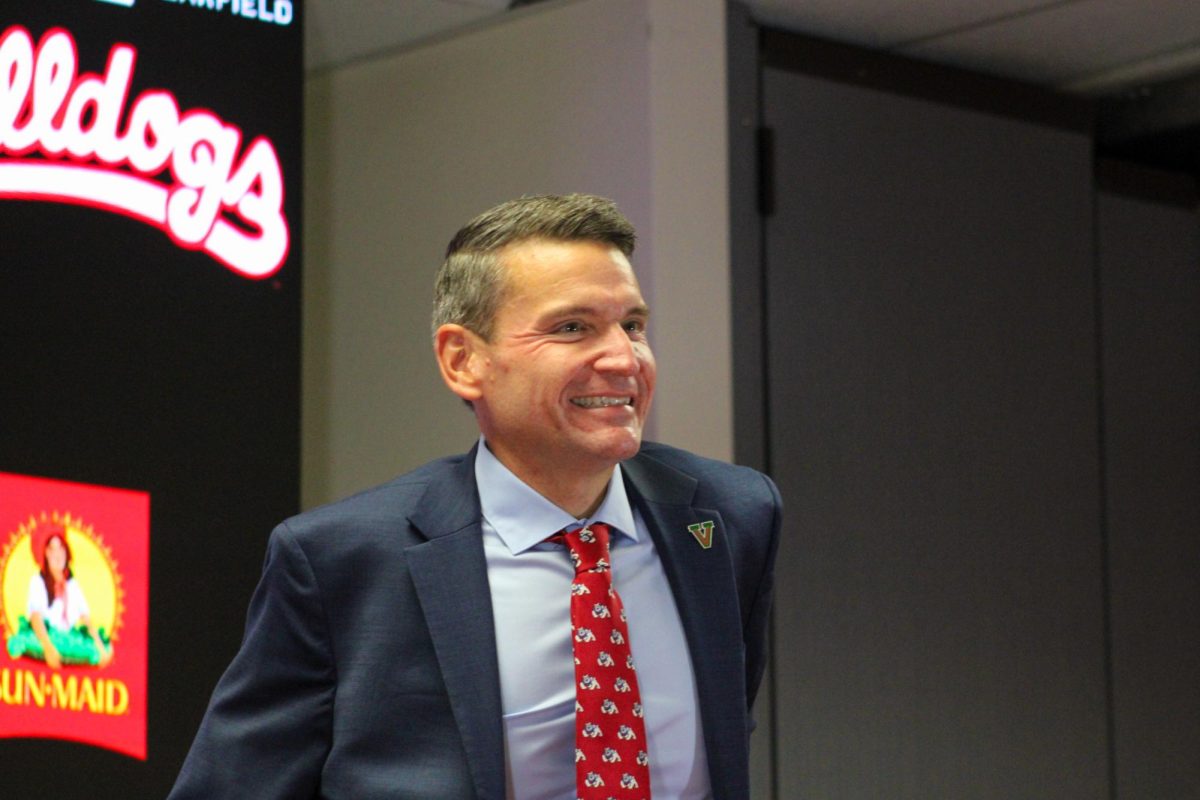Being among the most known people on campus and receiving athletic scholarships may make it sound very exciting to be a student athlete. However, the reality is that some of these students go through tremendous amounts of stress.
 “Student athletes are five times more likely to experience depression,” said Kelli Eberlein, an NCAA athletics healthcare administrator and the associate athletics director for sports medicine at Fresno State.
“Student athletes are five times more likely to experience depression,” said Kelli Eberlein, an NCAA athletics healthcare administrator and the associate athletics director for sports medicine at Fresno State.
In addition to managing time, student athletes face many factors they need to focus on such as improving their performance, meeting high expectations from coaches, media exposure and staying healthy, all of which add to the stress of being a full-time student.
The emotional stress from managing a tight schedule also physically affects the athletes.
Men’s cross country runner Christian Santana recalled how burning out made it unsafe for him to even drive.
“It was brutal,” Santana said. “I’d be kind of driving on the road with one eye opened and one eye closed because I’d be so tired to drive and still have to perform in the classroom or out in the field when we’re running.”
Some student athletes are economically strained because not all of them receive athletic scholarships.
Aside from attending classes, doing homework and going to practice, Santana works two jobs to help pay for his education. One is on campus to help special needs students and the other in sports and academic motivational coaching for children in different school districts across Fresno County.
All these activities add up to nearly 60 hours a week in total, not counting travel to attend meets with his team.
“A normal work week is probably somewhere between 40 hours or so on a good week. For training, I’d say we turn around like maybe an hour and 30 minutes a day so that probably adds up to like maybe closer to eight [a week] because we do get some days off. Then when it comes to classroom success, I always try to make sure I put at least an hour or two worth of studying,” Santana said.
The NCAA approved a new constitution in January 2022 that requires universities to ensure the psychological well-being of their student-athletes.
The new constitution, effective as of Aug. 1, 2022, says that “each member institution shall facilitate an environment that reinforces physical and mental health within athletics by ensuring access to appropriate resources and open engagement with respect to physical and mental health.”
This approval marked the first time in the NCAA’s history that mental health is explicitly mentioned in its constitution.
Director of Student-Athlete Development Carlie Corrigan says the athletics department is not only showing student athletes ways they can find help for themselves but also encouraging them to support each other.
“We did a gatekeeper suicide prevention education in the past and we’re going to be offering that as well to our student-athletes,” Corrigan said. “So just making sure that they’re aware of how to, as a bystander, engage in some of the things that they might be going through or their friends might be going through so they kind of know the proper channels of how to address that within themselves and support others.”
Getting injured is more than just missing out on competition or dealing with pain. It could mean losing a spot in the starting lineup, not playing a big game or even missing out on an entire season.
“Any time an athlete gets hurt it’s traumatic for them. Even if it’s a small injury, that’s an extra stressor for them,” Eberlein said.
Returning from injuries sooner requires extra work, which is more time that mounts on top of an already tight schedule. Student athletes already dedicate 20 hours of practice, and when they have an injury that can add a couple of more hours due to recovery.
Addressing mental health can be challenging because some athletes aren’t open to talking about their concerns.
The NCAA conducted another mental health well-being study in Fall 2021 that found that two-thirds of more than 9,800 student athletes know where to go on campus for mental health support, but less than half of them reported they would feel comfortable seeking help from on-campus providers.
“The first step is just acknowledging the problem because the sooner you’re able to do that, the more help you’ll get and the quicker you’ll get it,” Santana said. “It’s easier to live life a lie, and I know some people who definitely try to hide it.”
Student athletes participating in club sports aren’t exempt from the emotional strains of time management either.
Unlike NCAA teams, club sports receive limited funding and need to find ways to sustain themselves.
Isabella Bonilla, player and vice president of the Fresno State women’s rugby club, balances time between school and sports while also helping to ensure the club has enough resources to operate.
“As a club sport we do everything. We do all our fundraising, marketing and recruitment,” Bonilla said. “I find playing rugby to be a stress reliever, but it does for sure add some stress because we’re trying to get vans to be able to make it to games and set up games. We’re trying to make sure we have enough money to even be able to play.”
Lexey Jenkins, another women’s rugby club player, balances time between her education, sports and hosting Queer Talks every Friday.
“For the players who are on our [governing] board, I think it does increase their stress,” Jenkins said. “I’m not personally on the board, but I try to help out when I can. It just adds an extra level of time commitment because we’re here to play rugby, but we’re also having to do these fundraisers, put fliers out and table like it’s Dog Days to recruit to get people to play.”
A mental health resource Fresno State Athletics provides to its intercollegiate student athletes is a 24/7 hotline through Halcyon Behavioral Health, one of its sponsors. This is a way for them to have access to licensed therapists at any time.
However, other students prefer to speak with a counselor at the Student Health and Counseling Center in person.
“I know nowadays they do different things as well such as phone calls or like Zoom lectures so that way you can be with them at your own convenience, but I think in-person is definitely significantly better just because it feels as though you’re definitely being heard a lot more and you’re being taken serious,” Santana said.
This can take a long time, and it’s a problem not only for student athletes but for all students in general.
“It may be three to six weeks until you get in, and that’s unless it’s like a life-threatening mental health issue. It’s too much time to have to wait,” Jenkins said. “I remember my freshman year I tried to make an appointment and I did it online, and it was going to take like four weeks to get in so I just said, ‘nevermind.’”
The Student Health and Counseling Center currently has 13 staff members dedicated to counseling services. The team is composed of 10 counselors, a psychiatrist, an interim clinical coordinator and a training coordinator.
But Jenkins said there should be more counselors available because current staffing is not enough to serve a campus the size of over 24,000 students at Fresno State.
Other institutions have mental health treatment options that are specifically for student athletes, like the University of Southern California (USC), which has a sport psychology department with specialists who regularly hold sessions with both athletes and coaches.
Even though Jenkins is glad the health center is an available option for students, she wants to see similar options offered at Fresno State for all students participating in sports.
“I’m happy that we at least have this resource but I think there could definitely be more counseling, especially athletic-specific counseling even that club sports would have access to because we are student-athletes as well,” Jenkins said.




